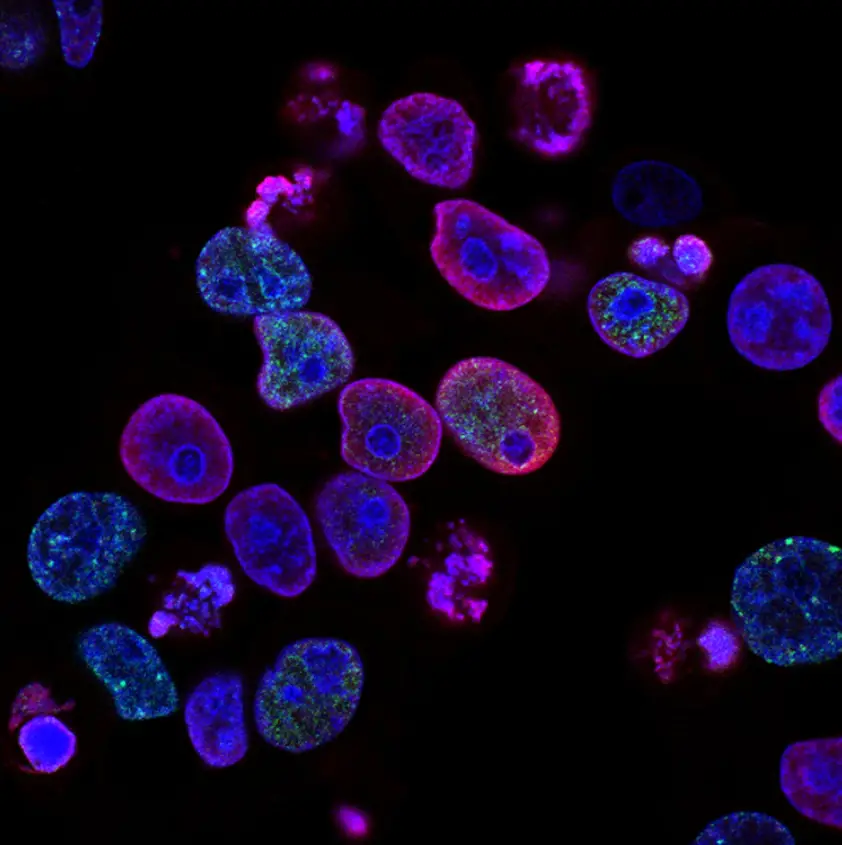The human mind, a captivating labyrinth of thought and emotion, has long intrigued us. Yet, the intricate interplay between our genes and mental well-being remains a mystery in progress.
Today, with the rise of direct-to-consumer genetic testing, a new chapter unfolds. Psychiatric nurses, at the frontlines of mental health care, stand at a crossroads in this journey about the potential role of genetics in mental health conditions.
This begs a crucial question: how can we leverage this burgeoning field to optimize patient care? In this blog post, we will explore the intersection of genetics and mental health. We will also shed light on providing psychiatric nurses with the necessary knowledge and tools for navigating this complex terrain.
Unveiling the Genetic Code: A Guide to Mental Health Testing
Imagine peering into the very blueprint of your mind. Direct-to-consumer (DTC) genetic testing promises a glimpse into the genetic underpinnings of mental health. But before diving in, let’s unpack the different testing options available to psychiatric nurses.
Single-Gene Spotlight: A Targeted Look
Single-gene testing focuses on a specific gene mutation known to be associated with a particular mental health condition. Think of it as a laser beam illuminating a single risk factor.
While valuable for certain disorders, like Huntington’s disease, it doesn’t paint the whole picture for most mental health conditions.
Polygenic Risk Scores: Unveiling the Mosaic
Polygenic risk scores (PRS) consider a multitude of genetic variations, each with a small influence, to estimate an individual’s overall susceptibility to a mental health condition.
Imagine a mosaic composed of countless tiles, each contributing to the overall risk profile. However, it’s important to remember that PRS is just a predisposition, not a definitive diagnosis.
Beyond the Genes: The Environmental Equation
Here’s the crucial caveat: our genes don’t operate in isolation. Environmental factors like stress, trauma, and life experiences significantly influence mental health. Think of it as a complex dance between genes and the environment. A genetic test result alone cannot predict the outcome.
This exploration helps nurses understand genetic testing’s complexities, limitations, and ethical considerations about mental health issues.
Practical Considerations for Psychiatric Nurses
The allure of genetic testing can spark a multitude of questions for your patients. A psychiatric nurse’s role extends beyond diagnosis and treatment; it encompasses navigating the often murky waters of genetic testing.
Here, we equip you with the tools to initiate informed conversations to ensure your patients embark on this journey with realistic expectations.
Gauging Interest and Expectations: Setting the Stage
Before delving into specifics, assess your patient’s interest in genetic testing. Explore their motivations and clarify their expectations. Are they seeking a definitive answer or simply additional information?
Remember, a genetic test result is only a single component of the overall picture.
The Power of Collaboration: Partnering with Genetic Counselors
While some psychiatric nurse practitioner master’s programs might have advanced training in genetics, for most, collaboration with a genetic counselor is essential.
These specialists possess the expertise to interpret complex genetic results and provide tailored guidance. Imagine them as expert translators, deciphering the intricate language of genes for your patients.
Ethical Dilemmas: Treading Carefully
Genetic testing raises sensitive ethical concerns. The potential for discrimination based on genetic predisposition or insurance implications requires open discussion. Empower your patients to ask questions and ensure they understand the potential ramifications before pursuing testing.
Beyond the Test: A Holistic Approach
Remember, a genetic test result doesn’t dictate a patient’s future mental health. The foundation of your care lies in a thorough evaluation and treatment plan grounded in evidence-based practices.
Think of genetic testing as a potential tool, but not a replacement for the therapeutic alliance you build with your patients.
Genetics Shaping Mental Health’s Future
The burgeoning field of mental health genetics continues to unveil its secrets. As we move forward, exciting new avenues beckon, promising to revolutionize patient care. Let’s explore some of the intriguing trends influencing the future of this ever-evolving industry.
Unveiling the Dance: Gene-Environment Interactions
Researchers are now focusing on the intricate interplay between genes and the environment. Imagine a complex dance where genes and life experiences work together to influence mental health susceptibility.
A heightened comprehension of these concepts may result in interventions that are more precise and tailored. These can address both genetic predispositions and environmental stressors.
The Promise of Gene Therapy: Rewriting the Script
Despite being in its nascent stages, gene therapy presents significant potential for advancing mental health. Imagine altering faulty genes or introducing corrective ones to potentially prevent or even treat certain mental health conditions. This groundbreaking method has the potential to reshape the mental healthcare landscape.
The Need for Lifelong Learning: A Commitment to Expertise
The field of mental health genetics is rapidly evolving. To stay at the forefront, ongoing education and training for psychiatric nurses are paramount.
Consider pursuing continuing education courses with a focus on advanced genomics. According to Rockhurst University, this commitment to lifelong learning ensures you possess the necessary expertise to integrate genetic knowledge into your patient care.
Issues surrounding privacy, informed consent, and the potential for discrimination require ongoing discussion and ethical frameworks. Psychiatric nurses play a crucial role in advocating for their patients’ rights. They can ensure the responsible use of genetic information.
To conclude, the intersection of genetics and mental health presents a captivating landscape. For psychiatric nurses, the key takeaway is this: DNA testing, while a valuable tool, offers just one piece of the puzzle.
As a psychiatric nurse, navigating this exciting frontier requires informed expertise. It also demands unwavering dedication to patient well-being. Through this approach, you can empower individuals to chart a course toward a brighter mental health future.

Throughout his career, Andras Kovacs has developed a deep understanding of DNA and its applications in genealogy and genetic testing. He has helped thousands of individuals uncover their ancestral heritage, using cutting-edge DNA analysis to trace family lineages and reveal connections across generations.

